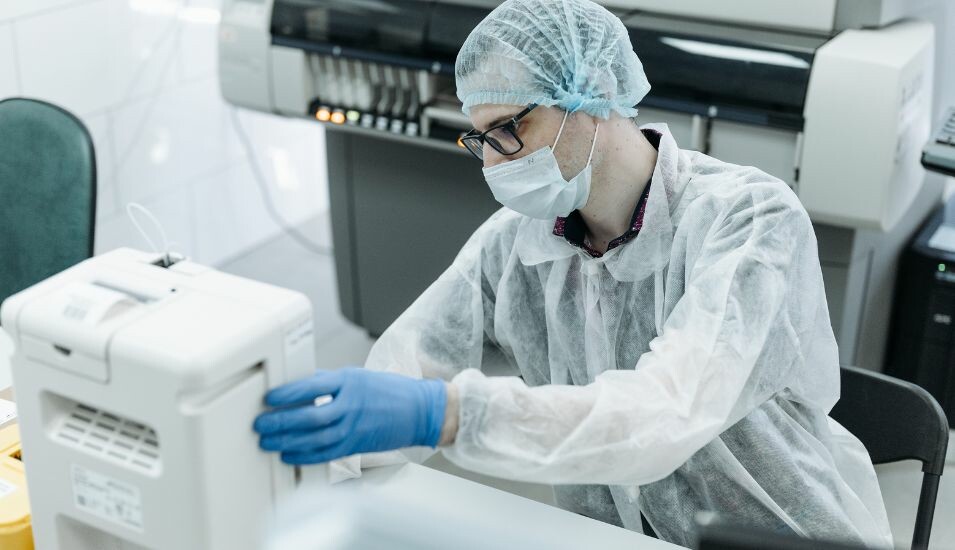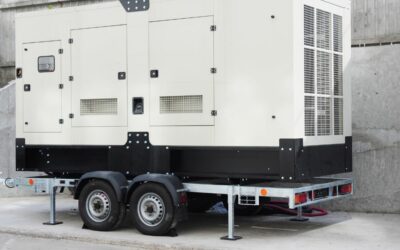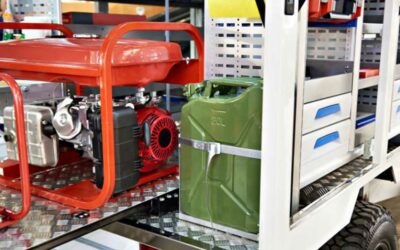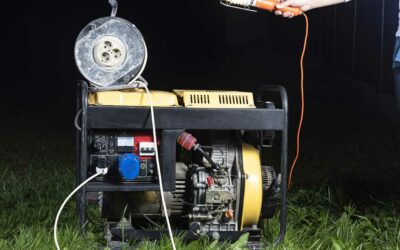A Buyer’s Guide for Industrial Generators Industrial generators have become the backbone of many industries, including manufacturing, health, communication, and agriculture. Diesel-powered industrial generators such as the Kohler KD3000 are the most sought-after...
10 Reasons Why Generators are Crucial for Medical Facilities
10 Reasons Why Generators are Crucial for Medical Facilities
Date: October 28th, 2022
Power is very important when it comes to medical facilities. In the event of a power outage, we don’t expect hospital operations to stop – I mean, lives can be lost. Power outages can be caused by anything from natural disasters to bad weather to man-made disasters, such as a car hitting a utility pole. So, as a medical facility, you need a backup power source. You might be wondering why you need a generator in your medical facility. This article explains 10 reasons why a Kohler commercial generator is crucial for your medical facility.
1: Power Saving Machinery
A power outage means no work, especially if you are heavily reliant on power. However, in a hospital, staff cannot just put work on hold. They need backup power to keep the critical care machines going. Various medical equipment depends on power. This includes defibrillators needed for emergencies and patients in intensive care units and pediatric care who depend on ventilators to stay alive. Each second that passes with no power risks a severe health emergency or even death. In more extreme cases, patients may have to be evacuated or transferred if a power outage threatens their care. But you want to be prepared for anything.

2: Preserve Medical Samples and Machines
Various medicines have to be stored in freezers to prevent them from spoiling. A good example is the Covid 19 vaccines that had to be kept cold. In case of a power outage, such medicines have to be administered quickly or thrown away. Thus, having emergency power protects your medical supplies. This not only protects patient care but also prevents the loss of millions. Blood samples and other medical samples have to be kept cold. A power outage thus risks these samples. This means delays in patient care as staff will need new samples, and test results may not come out correctly.
3: Maintain Day to Day Operations
Every state must adhere to generator standards -that is, all hospital generators must meet the National Life Protection Associations’ requirements. This ensures high levels of reliability and no interruptions to patient care. Emergency power has to kick in within ten seconds after an outage. Some generators do this with no delay. Without such a quick response, many disruptions can occur. The focus shifts from not only all patients to all the failed machines. Operations, those in labor, x-rays, and other hospital operations, are disrupted.
4: Reduce Adverse Events
With a reliable hospital generator, many adverse events can be avoided. For example, if the lights go off, patients can suffer from falls and injuries. Other risks include wrong-site surgeries, medication errors, or transfusion errors. HVAC systems can shut down, causing adverse impacts such as heatstroke. The hospital staff is also at risk. Generators can help reduce elevator issues and the risk of falls. A power outage can cause more stress because of the trauma of a power outage and the adverse effects it can cause.
5: Saves Data
One potential loss during a power outage that can be overlooked is data loss. Hospital generators help with frontline work and also serve administrative tasks. A power outage means computers do not shut down properly. This can corrupt files or prevent files from saving. Information such as treatment history, plans, or medical research can be lost. This can make it hard to treat patients without access to such medical records. Thus, you need a backup power source to avoid any inconveniencies.
6: Ensure Seamless Communication
For a hospital to function properly, there have to be communication systems internally and externally. Internal systems include signaling systems that inform the medical staff about patient issues. During a power cut, communication between different departments is cut short. External communication involves people calling in for emergencies. A hospital generator can help reduce these problems in the event of a power outage by ensuring smooth communication.
7: Prevent Food Wastage
You don’t only risk spoiling medical supplies in the event of a power outage. A generator can prevent food wastage and money loss in a hospital. After four hours of no power, food can become unsafe to consume. Imagine the amount of waste if a hospital feeds all patients. Other patients are on special diets that require them to be kept at certain temperatures. A power outage can pose a risk to such foods. To keep all food in good condition, you need a Kohler diesel generator.
8: Patient Comfort
A good patient care experience is beneficial to everyone. When patients have a good experience in a healthcare facility, they are highly likely to come back. Hospital generators ensure that hospitals maintain their comfortable setting. A failed HVAC system and water pressure can reduce a patient’s comfort level because they will not be able to maintain their hygiene when the power goes out. Kohler diesel generators are low noise emitting, making them suitable for use in a hospital setting.
9: Versatile Applications
A hospital generator can support several pieces of equipment and devices. A diesel generator, for example, does this with high efficiency and low fuel consumption. A healthcare facility will need this to sustain power for as long as a power outage lasts. Generators have load management and output altering. You can also install control systems to direct power as needed. Thus, hospital generators are the most reliable generators.
10: Long Lasting Power
Natural disasters such as hurricanes and extreme weather conditions can cause power outages for days. Hospital generators, however, can maintain power without interruption. More so, hospitals need fuel on-site for generators to be running for 96 hours.
In conclusion, these are the 10 reasons why a generator is crucial for your medical facility. All these reasons amplify how sensitive a healthcare facility is when it comes to power outages. A minor outage can cost many lives and the loss of many millions. Here at Power Systems West, we understand the sensitivity of the matter and have tasked ourselves with supplying you with Kohler Industrial generators. We have high-quality diesel generators set out for you. Check our page, Power Systems West, for more information.
Contact Us
Recent Blogs
How to Pick the Right Size Generator for Your Commercial Building
How to Pick the Right Size Generator for Your Commercial Building Category: Kohler Power Date: February 2nd, 2023 While installing backup generators is integral to every commercial establishment, purchasing quality industrial generators such as the Kohler KD3000 is...
Power Generator Fuel Options: Which is Right for You?
Power Generator Fuel Options: Which is Right for You? Category: Kohler Power Date: January 3rd, 2023 Most people shopping for generators consider the most established brands. While that is perfectly ok, it is also vital to consider the type of fuel a generator runs...
The Importance of Regular Generator Inspection and Maintenance
The Importance of Regular Generator Inspection and Maintenance Category: Generator Service Date: January 2nd, 2023 A generator is a great investment for your home and business, especially if you’re located in an area that experiences bad weather. Having a generator...
Power Systems West Sponsored Racer wins Rookie of the Year
Leon was starting his professional racing career driving his Legends Category: Events Date: December 19th, 2022 In the spring of 2022 Power Systems West sponsored a little-known racing rookie out of Boise, Idaho named Leon Tridle III. Leon was starting his...
How to Prepare Your Generator for Hurricanes and Severe Weather
How to Prepare Your Generator for Hurricanes and Severe Weather Category: Kohler Power Date: December 6th, 2022 Failing to plan is planning to fail. This quote by Benjamin Franklin has been used a lot to keep us on our toes in many aspects of our lives. But did you...









